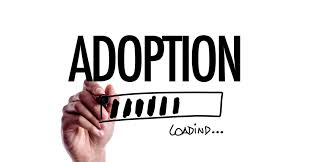


Intercountry and international adoptions have become increasingly common as families seek to provide loving homes to children across borders. However, these types of adoptions come with unique legal, cultural, and procedural challenges that require careful navigation. This article provides a comprehensive overview of the key family law issues involved in intercountry and international adoptions, offering insights into the legal framework, the rights and responsibilities of adoptive parents, and the best practices for ensuring a successful adoption process.
Understanding Intercountry and International Adoption
Intercountry adoption involves adopting a child from a country other than your own, governed by international laws, treaties, and the domestic laws of both the adoptive and child’s home countries. International adoption typically refers to any adoption involving parties from different nations, regardless of the adoption process.
The process of adopting a child internationally is often governed by treaties such as the Hague Convention on Protection of Children and Co-operation in Respect of Intercountry Adoption. This treaty establishes safeguards to ensure that adoptions are in the best interests of the child and that safeguards are in place to prevent child trafficking and exploitation.
Legal Framework Governing Intercountry Adoption
- The Hague Convention: The Hague Convention is the principal international treaty governing intercountry adoptions. It establishes international standards for adoption processes, ensuring that adoptions are ethical and transparent. Under this convention, adoptions must be carried out in the child’s best interests, with the child’s welfare taking precedence.
- Domestic Adoption Laws: Both the adoptive parents’ country and the child’s country have specific domestic laws that must be complied with. These laws regulate the eligibility of adoptive parents, the legal status of the child, and procedural requirements. Understanding and complying with these laws is crucial to avoid legal complications.
- Immigration Laws: In addition to adoption laws, immigration laws play a significant role in intercountry adoptions. Adoptive parents must ensure that their adopted child can legally enter and reside in their home country. This often involves navigating complex visa and residency requirements, which can vary significantly between countries.
Key Family Law Issues in Intercountry Adoption
- Eligibility of Adoptive Parents: Different countries have varying eligibility criteria for adoptive parents, including age limits, marital status, financial stability, and health conditions. Prospective parents must meet the requirements set by both their home country and the child’s country of origin.
- Consent and Parental Rights: Obtaining proper consent from the child’s biological parents or legal guardians is a critical aspect of intercountry adoption. The adoption must be free from coercion, and the biological parents’ rights must be fully relinquished before the adoption can proceed. In some cases, biological parents may have the right to reclaim the child within a specified period.
- Adoption Procedures: The procedures involved in intercountry adoption can be lengthy and complex, often involving multiple legal steps, home studies, background checks, and the preparation of comprehensive documentation. Adoptive parents may need to work with licensed adoption agencies that are accredited in both countries.
- Cultural and Ethical Considerations: Adoption across borders often involves children from different cultural, ethnic, or religious backgrounds. Adoptive parents must be sensitive to these differences and prepared to honor the child’s heritage. Ethical issues, such as ensuring the adoption is not influenced by financial incentives or coercion, are also paramount.
- Adoption Costs: The costs associated with intercountry adoption can be substantial, including agency fees, legal fees, travel expenses, and visa fees. Prospective parents should be aware of these costs and budget accordingly, ensuring that all expenses are transparent and properly documented.
- Post-Adoption Support and Adjustment: Once the adoption is finalized, families may face challenges in helping the child adjust to a new culture, language, and environment. Post-adoption support, including counseling and educational resources, can be critical in ensuring the child’s successful integration into the family.
- Legal Recognition of Adoption: Ensuring that the adoption is legally recognized in both the adoptive parents’ country and the child’s home country is essential. This may involve re-adopting the child under the adoptive parents’ domestic law to secure full legal parental rights.
- Citizenship and Naturalization: Adopted children may need to go through processes to obtain citizenship or permanent residency in the adoptive parents’ country. This process can vary widely and may require additional legal steps, such as readoption or filing for naturalization.
- Adoption Disruption and Dissolution: Although rare, some adoptions do not work out, resulting in disruptions or dissolutions. Families need to be aware of the legal implications of such situations and seek appropriate legal and psychological support.
- Child’s Right to Know Their Origins: Children adopted internationally may have the right to know their biological origins, especially as they grow older. Adoptive parents should be prepared to provide information about the child’s birth family and cultural background when appropriate and legally permissible.
Best Practices for Navigating Intercountry Adoption
- Engage Accredited Agencies and Legal Professionals: Working with accredited adoption agencies and experienced legal professionals familiar with both countries’ laws can mitigate many risks associated with intercountry adoption.
- Thoroughly Research and Understand the Process: Prospective adoptive parents should educate themselves about the legal requirements, the child’s background, and potential challenges involved in international adoption.
- Prepare for Cultural Integration: Adoptive parents should make a concerted effort to honor the child’s cultural heritage and help them maintain a connection to their roots.
- Ensure Compliance with All Legal Requirements: Parents must comply with the legal requirements of both countries throughout the adoption process, including completing all necessary documentation and court procedures.
- Plan for Post-Adoption Support: Establishing a support network, including counseling and peer groups, can help the adopted child and the family adjust to their new life together.
Conclusion
Navigating the complex landscape of intercountry and international adoptions requires a deep understanding of both domestic and international laws, as well as a commitment to the child’s best interests. By being well-informed and working with experienced professionals, adoptive parents can ensure a smoother adoption process and provide a loving, stable home for their new child. The journey may be challenging, but the reward of building a family that transcends borders is immeasurable.
. Intercountry Adoption
. International Adoption
. Hague Convention
. Adoption Laws
. Family Law Issues
. Parental Rights
. Adoption Procedures
. Legal Recognition of Adoption
. Citizenship and Naturalization
. Post-Adoption Support
Contact Us
Chaman Law Firm today. Our offices are conveniently located in Lagos, FCT Abuja, Ogun State, and the UK. We are readily available to assist you with your legal needs. Whether you require consultation, representation, or ongoing legal support, Chaman Law Firm is your trusted partner.
Call us at 08065553671 or email us at info@chamanlawfirm.com to schedule a consultation

